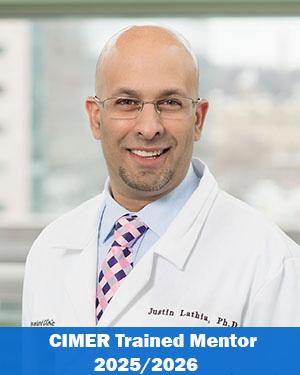Research News

Justin Lathia, PhD, Vice Chair, Department of Cardiovascular & Metabolic Sciences, recently received a five-year, $2.1 million grant from the National Institute of Neurological Disorders and Stroke to better understand the mechanisms of immunosuppression that enable glioblastoma (GBM) to evade traditional treatment, and to develop new therapies to address this resistance.
While most GBM treatments target tumor cells, Dr. Lathia and his team seek to inhibit the activity of immunosuppressive cells called myeloid-derived suppressor cells (MDSCs) to reduce tumor growth.
This study builds on previous work from Dr. Lathia and Michael Vogelbaum, MD, a neurosurgeon at the Moffitt Cancer Center in Tampa, showing that MDSC levels are elevated in GBM patients with particularly poor prognosis. It is believed that the GBM tumors secrete factors that promote migration of MDSCs to the brain. Upon migration, a complex signaling cascade, which involves cancer stem cells and macrophage migration inhibitory factor (MIF), “turns on” the MDSCs. When activated, MDSCs block the beneficial antitumor immune response, allowing tumors to grow and spread unchecked.
With this new award, the team will study how these various cells work and evaluate the therapeutic benefit of targeting intratumoral MDSCs. They will explore if novel MIF-targeting agents can effectively slow GBM growth by reversing the mechanisms by which MDSCs suppress the immune system.
“Our understanding of how the immune system operates in the brain in normal as well as in pathological conditions is improving,” Dr. Lathia comments. “This knowledge should help us target these infiltrating cell populations as alternative therapies to encourage patients’ own immune systems to successfully attack glioblastoma tumors.”
Featured Experts
News Category
Related News
Research areas
Want To Support Ground-Breaking Research at Cleveland Clinic?
Discover how you can help Cleveland Clinic save lives and continue to lead the transformation of healthcare.
Give to Cleveland Clinic